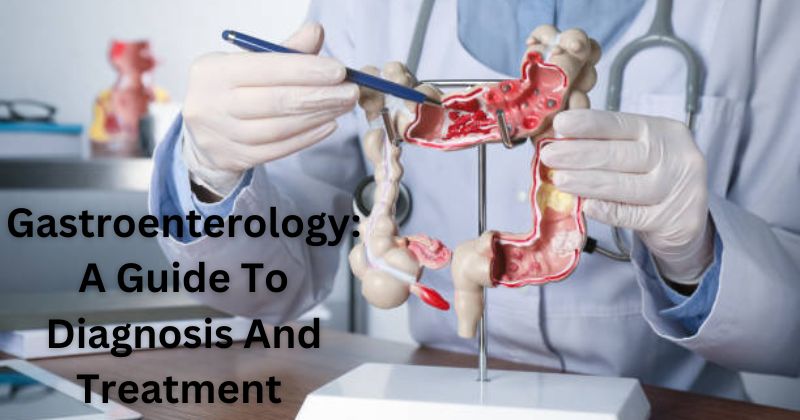Gastroenterology is a specialized field of medicine focused on the digestive system and its disorders. It involves diagnosing and treating a wide range of conditions affecting the gastrointestinal (GI) tract, including the esophagus, stomach, liver, pancreas, intestines, and rectum. The field encompasses a variety of diseases such as acid reflux, irritable bowel syndrome (IBS), liver diseases, gastrointestinal cancers, and more.
If you seek the best doctor in Kolkata, it’s important to find a specialist with expertise in diagnosing and treating the specific conditions affecting your digestive health.
Common Gastrointestinal Disorders
Here are some of the most common conditions treated by gastroenterologists:
1. Acid Reflux and GERD
Acid reflux occurs when stomach acid backs up into the esophagus, causing heartburn. Chronic acid reflux is referred to as gastroesophageal reflux disease (GERD). Symptoms include a burning sensation in the chest, regurgitation of food or sour liquid, and difficulty swallowing.
2. Irritable Bowel Syndrome (IBS)
IBS is a functional gastrointestinal disorder that causes abdominal pain, bloating, diarrhea, and constipation. It is a chronic condition, but symptoms can be managed with dietary changes, stress management, and medications.
3. Inflammatory Bowel Disease (IBD)
This includes two main conditions: Crohn’s disease and ulcerative colitis, both of which involve chronic inflammation of the digestive tract. Symptoms can include abdominal pain, diarrhea, weight loss, and fatigue. Treatment typically involves medications to control inflammation and immune responses.
4. Hepatitis and Liver Diseases
Hepatitis is an inflammation of the liver, usually caused by a viral infection, although excessive alcohol consumption and certain medications can also lead to liver damage. A gastroenterologist may treat chronic hepatitis B or C, cirrhosis, fatty liver disease, and liver cancer.
5. Gastrointestinal Cancer
Cancer can affect various parts of the digestive tract, including the esophagus, stomach, pancreas, liver, and colon. Early detection through screenings such as colonoscopies and endoscopies is crucial for successful treatment.
6. Gallbladder and Pancreatic Disorders
Conditions such as gallstones, pancreatitis, and pancreatic cancer are also part of a gastroenterologist’s scope. Symptoms might include abdominal pain, nausea, and jaundice.
7. Celiac Disease
This autoimmune disorder is triggered by the consumption of gluten in individuals who are genetically predisposed. It can cause symptoms like diarrhea, weight loss, and fatigue, and can lead to long-term damage to the intestines.
Diagnostic Procedures in Gastroenterology
A gastroenterologist uses various diagnostic techniques to identify gastrointestinal disorders. Some common procedures include:
Endoscopy: A flexible tube with a camera is inserted into the GI tract to visualize and diagnose conditions like ulcers, inflammation, or tumors. Examples include gastroscopy (stomach) and colonoscopy (colon).
CT Scan/MRI: Imaging studies help in identifying abnormalities in the digestive organs.
Blood Tests: Blood tests can help in diagnosing liver function, pancreatic enzyme levels, and the presence of infections or autoimmune diseases.
Ultrasound: An ultrasound may be used to examine organs like the liver, gallbladder, and pancreas for issues such as stones or tumors.
Treatment Options
Treatment depends on the condition being addressed. Common approaches include:
Medications: These may include proton pump inhibitors (PPIs) for acid reflux, antiinflammatory drugs for IBD, antiviral treatments for hepatitis, or immunosuppressive drugs for autoimmune conditions.
Dietary and Lifestyle Modifications: Many GI conditions, like IBS and GERD, can be managed with dietary changes. For example, avoiding certain foods that trigger symptoms, eating smaller meals, and reducing stress can significantly improve quality of life.
Surgery: In cases where medications and lifestyle changes do not resolve the issue. For instance, removing a diseased gallbladder or tumor may be required for certain cancers.
Endoscopic Procedures: Procedures such as banding for varices, dilation for strictures, or stenting for obstructions can help manage certain conditions without surgery.
Choosing the Best Gastroenterologist in Kolkata
When looking for the best gastroenterology doctor near you in Kolkata, it is essential to consider a few factors:
Credentials and Experience: Look for a gastroenterologist with advanced training, board certification, and years of experience treating the specific condition you are dealing with.
Reputation: Research online reviews, ask for recommendations from friends or family and check the doctor’s success rate with procedures and treatments.
Specialization: Some gastroenterologists may specialize in specific areas such as liver disease, colorectal cancer, or inflammatory bowel diseases. Finding a doctor who has experience with your specific condition can improve outcomes.
Hospital Affiliations: Many top gastroenterologists in Kolkata work with well-established hospitals and healthcare centers. Check if the doctor is affiliated with leading medical institutions.
Approach to Patient Care: It’s essential to feel comfortable and heard by your doctor. Choose a gastroenterologist who takes the time to explain your condition and treatment options, and listens to your concerns.
Conclusion
Gastrointestinal health is critical for overall well-being, and timely diagnosis and treatment by a qualified gastroenterologist can significantly improve the quality of life. Whether you are dealing with a chronic condition or need a one-time procedure, choosing the best gastroenterology doctor near me in Kolkata is an important step in managing your digestive health effectively. Make sure to consult with a highly regarded specialist who can guide you through the diagnosis, treatment, and recovery process.
If you’re in Kolkata, you’ll find numerous experienced gastroenterologists with the expertise to treat a wide array of digestive disorders. Take the time to research, and consider factors such as experience, specialization, and reputation when choosing your doctor.
For more(click here)






